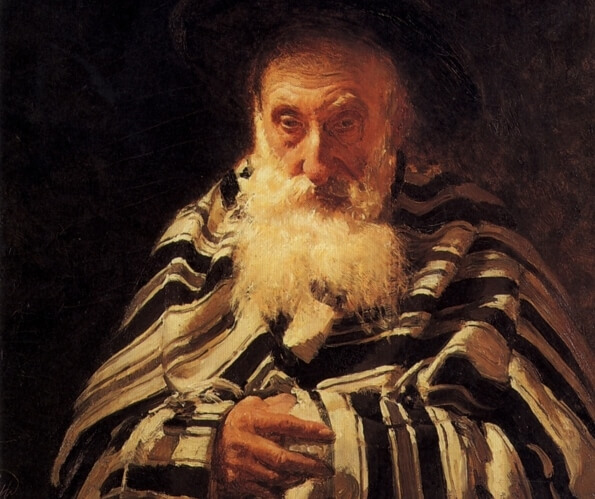
The focus of the Amidah, the core prayer of the daily liturgy, is inwards. It is recited quietly, with minimal physical movement. As its name suggests, we stand during the Amidah, our legs placed together to emulate the angels. Even bowing is limited to two of its nineteen blessings:
“One bows when reciting these blessings: the beginning and end of Avot [the blessing of the Patriarchs] and the beginning and end of Hoda’ah [the blessing for giving thanks].
If a person should want to bow at the end of all of the blessings, or at their beginning, he is advised not to do so.” (Berachot 34a)
What is special about these two blessings that they were designated for bowing? Why do we bow both at their beginning and end? Any why not bow for the other blessings of the Amidah prayer?
Emulating the Avot
First we must clarify: what does it mean when we bow our heads? This physical gesture signals an attitude of deference and humility. This is especially appropriate when we compare ourselves to those who are far greater than us.
The Amidah prayer opens with the Avot blessing. We begin our prayer by connecting to God as “the God of Abraham, the God of Isaac, and the God of Jacob.” It is logical that we should wish to follow in the spiritual path of our illustrious forefathers. It should be clear, however, that there is no comparison between our feeble grasp of God’s infinite greatness and the far more profound understanding attained by those spiritual giants. Therefore, as we recall our forefathers’ unique relationship of with God, it is proper that we indicate our comparatively humble abilities.
In fact, we bow twice. We acknowledge our relative inferiority in two respects. First in terms of their natural receptiveness to holiness, the remarkable purity of their hearts and lofty emotions. We recognize their innate gifts by bowing at the start of the blessing. This corresponds to the natural spiritual awakening which commences one’s connection to God.
We are also fall short of our forefathers in terms of intellectual ability. We demonstrate this shortcoming when we bow at the end of the blessing, since intellectual examination follows the initial emotive awakening.
In short: the key message of the Avot blessing is an attempt to approach God by emulating the lofty service of the Patriarchs. But this necessitates a demonstration of humility at the beginning and the end of the blessing, as we acknowledge our comparatively meager spiritual and intellectual gifts.
Insufficient Thanks
The Sages taught that we should also bow during the penultimate blessing, the berachah of Hoda’ah, as we express our gratitude and thanks to God. Why is this blessing also suitable for bowing?
In Hoda’ah, we reflect on God’s constant kindnesses to us - “for our lives that are in Your charge, for our souls that are in Your care, for Your miracles that are with us daily, and for Your continual wonders and favors.” We must recognize, however, that no matter how much we try to envision our indebtedness to God, it will be incomplete. Both in terms of our feelings of gratitude as well as our intellectual grasp of our debt to God, we cannot express nor do we even have the ability to grasp the full extent of thanksgiving that is appropriate. Therefore, we bow at the beginning and the end of the blessing of Hoda’ah, a gesture which acknowledges the inadequacy of our gratitude, both emotionally and intellectually.
The Goal of Humility
And finally: why did the Sages restrict our bowing to these two blessings? Why not bow during other segments of the Amidah prayer?
We do not bow our heads to resign ourselves to failure. Humility is a beautiful trait, but we must be careful not to become mired in a debilitating morass of apathy and negativity. On the contrary, the true goal of humility is to inspire us to strive for greater spiritual attainments. An accurate assessment of our current state prevents complacency. It should stimulate us to uncover our soul’s true potential and strive for those lofty levels that are suitable for it.
In order to avoid the pitfalls of excessive meekness, the Sages cautioned against bowing during every blessing of the Amidah. We must recognize our true spiritual potential. We need to feel not only a sense of humility, but the entire gamut of feelings emanating from the light of truth.
(Adapted from Ein Eyah vol. I, pp. 163-164; Olat Re’iyah vol. I, p. 266)





